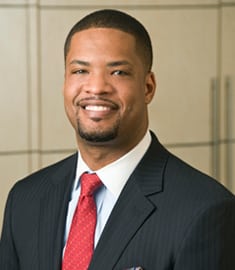
Career communicators will invariably say their skills and expertise are highly transferable. That is 100% true—with one exception. Fostering awareness and engagement through public relations in highly regulated industries is completely different. Those industries—financial services, healthcare, insurance and aviation, for example—require a level of expertise that a generalist cannot provide.
Unlike the typical consumer packaged goods launch, highly regulated companies tend to market to niche audiences. The target audience for an enterprise risk management solution for a municipality, for example, is very specific, and requires that the PR exec and/or marketer be able to speak the language of government risk management.
Indeed, managing communications in highly regulated industries is entirely different from consumer-oriented PR. There are three core reasons why.
You cannot become an expert in 30 days.
If the budget permits, a content marketing company, public relations team or advertising agency should be brought in to help execute an integrated awareness and engagement campaign, but buyer beware. Do not send a generalist to do an expert’s job. Even the best agencies will need at least 30 days to 60 days to really wrap their arms around one of these markets. Do you really want to pay a firm a retainer for two months to learn your industry when you can hire one that specializes in your industry and is ready to deliver an impact the first week?
There is a hard requirement to understand the numerous and complex laws and regulations that impact how these businesses operate, as well as the industry language and lexicon. Marketers do not have the time to teach a generalist firm those nuances.
Hiring an industry dilettante can be a costly mistake. Members of the trade media know instantly when the person on the other end of the phone truly understands the subject matter he or she is pitching. The same is true with prospects and existing customers.
Relationships matter.
The editor of one of the most influential financial industry trade publications said he gets roughly 100 emails a day from people pitching him story ideas for his magazine. Without a longstanding history with an industry influencer, it is almost impossible to cut through the noise. Relationships matter in highly regulated industries. People in the most influential roles tend to move around within the space.
Social media is a great litmus test for vetting your outsourced marketer’s relationships. Are the people you want to be introduced to engaging with the people who will manage your account? LinkedIn and Twitter are just as important vehicles for engagement as tradeshows and road shows. A public relations manager in the financial services industry should know the editors of ABA Banking Journal or American Banker without having to look up a media profile in a database.
There are no Do-Overs.
When launching a product or company, there is only one chance to get the formula right. There is no cheaper, faster way to build awareness and establish credibility in a highly regulated, highly skeptical industry than a great media relations program.
Successful campaigns will require teams to win industry awards, advertise, leverage media relations and deploy digital strategy to not only distribute information but compel prospects and influencers to come to the company’s website and engage on multiple platforms. To execute a plan like that, look to a firm with a proven history of success in a specific market. A firm that has won awards for promoting soda or chainsaws may fail miserably in the insurance sector or healthcare technology.
Highly regulated industries can be incestuous. The people in the industry who make buying decisions or influence those decisions are typically industry veterans, and they want to get information from other industry veterans.
Tapping experts to help manage communications strategy and execution is even more crucial in this space because the regulatory environment can change so quickly. One swipe of a congressional pen can open a world of opportunity for an organization or put it out of business. Teaching a generalist firm or content manager the intricacies of an industry may cost time and money you don’t have.
Finally, organizations have one opportunity to make a first impression. Sales and marketing efforts have to be timely, relevant and delivered in the language the industry speaks. While there are great communications firms with an impressive roster of name brands under management, do not make the mistake of selecting one that does not have a history in the unique industry that you are targeting.
Andrew McCaskill is senior VP at William Mills Agency.

Professionals can benefit well in areas of personal interests and expertise. Since time and budget are huge factors, projects benefit more after a team sorts through their interests and level of expertise. Good article.